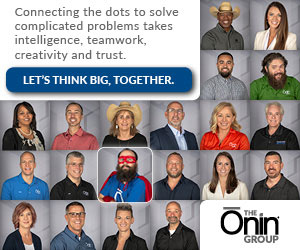Modern employees, shaped by technological advancements and new societal values, often miss out on essential soft skills that were second nature to previous generations. This gap in crucial areas — like communication, teamwork, and problem-solving — creates challenges for employers who want to keep their teams productive and cohesive.
So, what can employers do to navigate these changing dynamics? Let’s dive in and find out.
Why Don’t Workers Have the Same Soft Skills They Used To?
First, let’s consider why workers don’t have the same skills they traditionally have. The workforce has undergone a massive shift over the past five years.
Consider that:
- By 2024, Gen Z is poised to overtake Baby Boomers in the workplace, marking a profound transformation in the American workforce.
- As Baby Boomers rapidly approach retirement, with over 11,200 Americans turning 65 every day from 2024 to 2027, their departure signifies the loss of invaluable hard and soft skills, along with their ability to mentor younger generations.
- Compounding these age-related changes, the ethnic diversity of the American workforce has expanded dramatically; in the 1950s, 87.5% of Americans were white, compared to just 57.8% today. This diversity brings varied cultural perspectives on work behavior, skills, and values, further reshaping the modern workplace.
- Additionally, the COVID-19 pandemic has accelerated changes in work habits and expectations, further complicating the landscape.
How Do Soft Skill Gaps Impact Modern Employers?
Soft skills, once considered fundamental, are now seen by some as “old-school.” However, the reality is that these skills remain crucial in the workplace, albeit under new dynamics.
Here’s how technology and culture have altered the perception and development of soft skills like timeliness, communication, problem-solving, and teamwork.
- Timeliness: In the past, timeliness was a non-negotiable attribute of a reliable worker. Today, with the rise of remote work, employees have more flexibility. If a car breaks down or childcare plans fall through, many can work from home without the need for manager approval. While this flexibility is advantageous, it has also led to a more relaxed attitude towards punctuality and attendance in some sectors, posing challenges for roles that require strict adherence to schedules.
- Problem-Solving: Over-reliance on external information sources can diminish employees’ ability to think critically and solve problems independently. With Google and YouTube providing answers to virtually any question, the need for independent problem-solving has diminished. While access to information is beneficial, it can create a reliance on external sources for solutions and diminish the inclination to think and problem-solve independently.
- Communication: Communication methods have proliferated. Beyond face-to-face interactions, we now have texts, direct messages, and social media comments. This variety has made communication more immediate but also more fragmented. The ease of digital communication can sometimes undermine the depth and clarity of interactions,, especially in-person. Without solid communication as a foundation, building a team ethos becomes more challenging.
Problems a Lack of Soft Skills Can Cause
As an employer, you are likely feeling the impact of a decline in soft skills among the workforce. This shift presents significant challenges for employers, including:
- Decreased Productivity: Employees who struggle with time management, prioritization, and effective communication are more likely to miss deadlines, overlook critical details, and require more oversight. This can slow down project timelines and result in missed opportunities.
- Higher Operational Costs: Without strong soft skills, employees may need more frequent supervision and interventions to resolve conflicts and avoidable mistakes, which increases the company’s expenses.
- Reduced Quality of Work: Poor soft skills can result in lower quality work due to miscommunication, lack of attention to detail, and insufficient problem-solving capabilities. These issues may necessitate a rework, which further drains resources.
- Burdened and Stressed Direct Leaders: Supervisors and managers are increasingly burdened and stressed due to the need to compensate for their team’s lack of soft skills. They may find themselves spending excessive time on basic coaching, conflict resolution, and detailed oversight, detracting from their ability to focus on strategic initiatives. This added pressure can lead to burnout, higher turnover rates among leadership, and a decline in overall team morale.
These transformations are largely driven by advancements in technology and shifts in cultural values, reshaping the landscape of essential soft skills. Employers must adapt to these changes by investing in the development of soft skills to ensure a productive and harmonious workplace.
Solutions for Today’s Workforce
Addressing the gap in soft skills requires a strategic approach, particularly in transforming supervisors and line leaders into coaches who can nurture these abilities.
Transforming Supervisors into Coaches
In the past, leadership often meant top-down management, where instructions were given, and compliance was expected. However, this approach is less effective with today’s workforce. Modern employees seek more than orders; they want guidance, motivation, and respect. Workers need their leaders to model excellent soft skills for those skills to be emulated by the rest of the team. To achieve this, supervisors must evolve into coaches who support and develop their teams.
What Does It Mean to Be a Coach?
In the industrial sector, being a coach means more than just overseeing processes.
It involves:
- Motivating Team Members: Correct mistakes in a way that encourages improvement rather than instills fear of criticism.
- Building Relationships: Establish professional relationships where team members feel respected and valued.
- Creating a Positive Team Environment: Foster a sense of belonging and importance within the team.
This is easier said than done, as supervisors are often already extremely busy. Adding more obligations and skills to their job requirements can increase their burden. Therefore, it’s crucial to find strategic ways to implement these approaches without overwhelming them.
Organizations can adopt several strategies to achieve this:
- Soft Skill Training: Provide training programs focused on developing essential soft skills. This can include workshops, role-playing scenarios, and continuous learning opportunities.
- Clear Communication Channels: Ensure supervisors have the tools and platforms necessary for effective communication with their teams.
- Feedback Mechanisms: Establish systems for regular feedback that allow supervisors to understand their team’s needs and adjust their coaching methods accordingly.
- Recognition Programs: Implement programs that recognize and reward teamwork and effective problem-solving, reinforcing the value of these skills.
Remember, Soft Skills are Teachable and Trainable
Soft skills, like any other skill, can be developed. While some individuals may naturally excel in these areas, others can learn and improve through practice and guidance. By investing in soft skill training, organizations can ensure their workforce is equipped to meet the demands of modern employment.
The workforce of today is different, shaped by technological advancements and cultural shifts. However, the need for soft skills remains as important as ever. By transforming supervisors into coaches and investing in soft skill development, organizations can create a dynamic, capable, and cohesive team ready to tackle the challenges of the modern workplace. Embracing these changes will not only enhance individual performance but also drive collective success, ensuring a bright future for both employees and employers.






